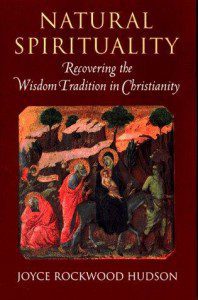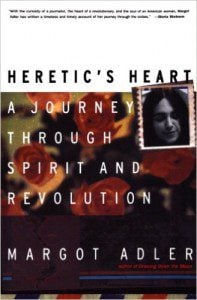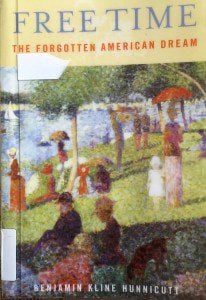For Lent, I preached a five-part series on Jungian Spirituality, based on Joyce Rockwood Hudson’s book Natural Spirituality: Recovering the Wisdom Tradition in Christianity. The following is a brief description of each of the sermons in this series:
Natural Spirituality: Recovering the Wisdom Tradition in Christianity. The following is a brief description of each of the sermons in this series:
Confronting the Unconscious: From Supernatural to Natural Spirituality
We should be extraordinarily careful about attributing causation to God and meaning to events. And I am, by no means, promoting a variation of the harmful canard that “everything happens for a reason.” But, at least for Joyce Rockwood Hudson, calling these two events “mere coincidences” did not adequately explain the powerful impressiveness of her personal experience. She increasingly had eyes to see and ears to hear “very personal and specific meaning” in events that would have previously seemed coincidental, random, and generic. In Jungian terms, Joyce was experiencing a “confrontation with the unconscious.” And when she examined these resonances between the inner and outer world, she found guidance, insight, and encouragement on her journey toward spiritual growth and greater wholeness.
This scenario does not require or allow for any supernatural control of the weather. Rather, you are invited to consider if we sometimes unconsciously have access to additional level of reality that our conscious minds cannot typically perceive. The more you open yourself to noticing and learning from synchronicities during the day and your dreams at night, the more you may find yourself with breakthrough insights into how to grow toward greater spiritual maturity and personal wholeness.
A Dream Uninterpreted Is a Letter from God Unopened:
The writings of Carl Jung invite us to do is pay attention to synchronicities (“meaningful coincidences”) during the day and to dreams at night. The claim, which you are invited to test in the crucible of your own experience, is that the more attentive you are to synchronicities and dreams, the more you will be able to integrate your personal unconscious into your waking life and the more you will be in touch with the wisdom of the Collective Unconscious.
Synchronicity, Coincidence, and Jeff, Who Lives at Home:
Jung invites us to experiment in our own lives with the claim that through practices such as dream work and paying attention to synchronicities (“meaningful coincidences”), we can catch glimpses of a web of meaning of which our conscious selves are typically unaware. Similarly, Viktor Frankl writes, ‘The only appropriate attitude to such coincidences is to not even try to explain them. I am too ignorant to explain them, and too smart to deny them.’”
Individuation, The Beatles, and the Journey to Wholeness
Instead of the next world, the focus is on the just how deep our inner and outer religious experience can be in this world and during this life. Instead of a single decision that can be made even by a small child, the emphasis is an ongoing, lifelong process of spiritual growth that most people cannot even begin to be comprehended until middle age at the earliest. Joyce Rockwood Hudson has an entertaining and significant take on The Beatles’ music career as an illustration of the journey toward wholeness. Jung called this journey individuation: the process of exploring one’s inner self as the path toward growth, maturity, and fully living into a healthy version of the person you alone are uniquely capable of becoming.
If you have suggestions or experience related to bringing Jung to church, I welcome your feedback in the comments section.
The Rev. Carl Gregg is a trained spiritual director, a D.Min. candidate at San Francisco Theological Seminary, and the pastor of Broadview Church in Chesapeake Beach, Maryland. Follow him on Facebook (facebook.com/carlgregg) and Twitter (@carlgregg).












